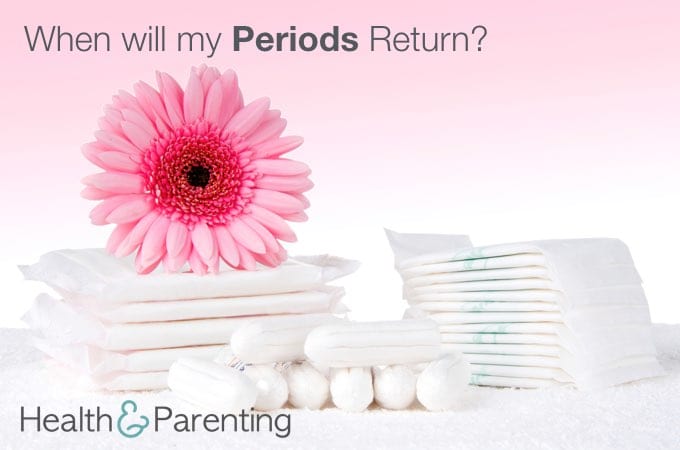There’s no way of predicting exactly when your periods will return after the birth. Though it’s been awhile since you’ve needed them, you may want to stock up on sanitary products now to avoid a last minute dash to the store when your periods do return. If your baby is formula fed, you may find your period returns as early as five to six weeks after the birth. Most women who feed their babies formula find they get their first period within 10 weeks of becoming a mama. This can also be the case if your baby has a mixture of breast and formula milk.
If your baby is exclusively breastfed, it may take a little longer for your period to return. If you breastfeed often, you may find that your period doesn’t return until your baby is down to just three feeds a day. There is no hard and fast rule, however, your periods may return when you are still feeding frequently throughout the day.
What will the first period be like?
You may find that your periods are heavier than usual after the birth. You may need to use both tampons and pads at first because of the increased flow. Your periods may also be irregular. Some women find that their periods are months apart when they first return. Some women find clots in their period after birth, this is usually nothing to worry about and is often a sign that your body is healing after the birth. If you’ve had clots in your period for a week, however, you should contact your healthcare provider for advice.
Birth control
You may ovulate before you get your first period, so it’s important that you use birth control if you don’t want to fall pregnant again. It’s impossible to predict when you will ovulate for the first time, so you should start using birth control soon after the birth. Speak to your healthcare provider for advice about which form of contraception is best for you.
Frequent breastfeeding can delay ovulation. Breastfeeding stimulates the release of prolactin which can delay ovulation. However, there is no way of knowing whether ovulation is about to occur so it’s best to use birth control to be on the safe side. Some women find they do not ovulate until they have finished their breastfeeding journey but for others their cycle kicks in whilst they are still breastfeeding.
Written by Fiona (@Fiona_Peacock), mother, writer and lover of all things baby related.
This information is not intended to replace the advice of a trained medical doctor. Health & Parenting Ltd disclaims any liability for the decisions you make based on this information, which is provided to you on a general information basis only and not as a substitute for personalized medical advice. All contents copyright © Health & Parenting Ltd 2016. All rights reserved.










